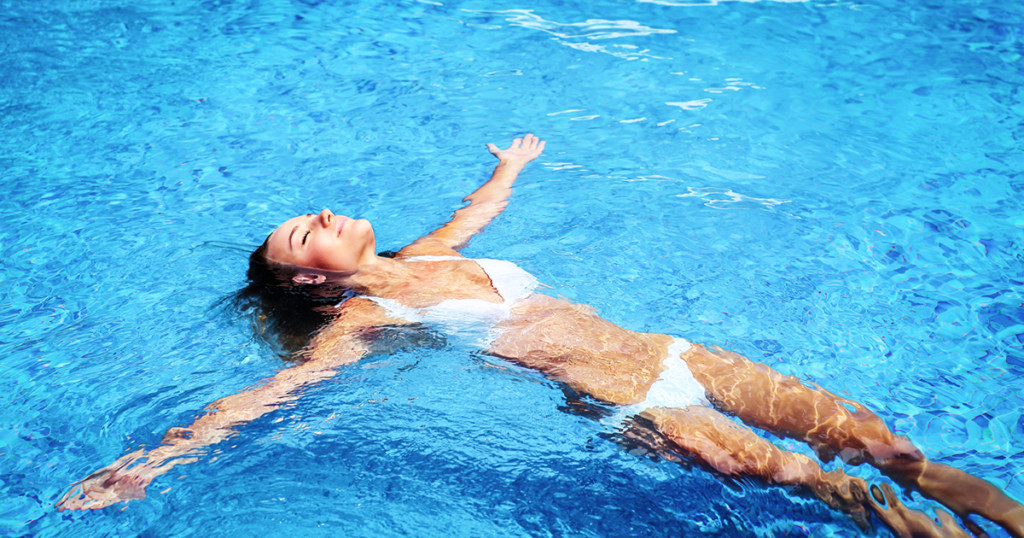
Taking a dip in the pool is a great way to cool off in the summer, or maybe you prefer relaxing in the jacuzzi after a hard day’s work. When you’re enjoying your time in the water, your teeth may be the last thing on your mind. Did you know spending too much time in chlorinated water can have a negative impact on the health of your smile?
Isn’t Chlorine Safe?
Chlorine is commonly used in water as an antimicrobial agent. It helps keep us safe from harmful bacteria in our drinking water. It also keeps our pools clean and free from algae. However, when chlorine is added to water, it affects the water’s pH balance.
The pH balance is how acidic or alkaline the water is. While it takes an extremely low pH level of 5.5 to actually dissolve a tooth, pools that are not properly chlorinated, or frequent exposure to the chemical, can still have a negative impact on the health of your teeth.
In 2010, New York University’s College of Dentistry did a study on a male patient who had reported extreme tooth sensitivity. He also reported the appearance of dark stains on his teeth.
The study, conducted by Dr. Leila Jahangiri, revealed that the man’s trouble started after he had began a daily, 90-minute swimming routine in his backyard pool. The culprit? Improperly chlorinated water.
Don’t wait until you’ve already damaged your teeth to act! Repairing damaged teeth is a lot more difficult (and costly) than prevention.
How Does it Affect Your Teeth?
A properly maintained pool should have a pH balance between 7.2 and 7.8. When the pH balance of a pool is not properly maintained, or if you are swimming six or more hours a week, you may be putting your smile at risk. If you think you might have enamel loss, check your teeth for the following symptoms:
- Extreme Tooth Sensitivity: Do you suddenly have an intense sensitivity to hot or cold?
- Dark Staining of Teeth: Do your teeth have a dark brownish buildup on them?
- Tooth Transparency: Are the edges of your front teeth beginning to look transparent?

How Can You Protect Teeth from Chlorine When Swimming?
If you are planning on spending a lot of time in the water this summer, don’t wait until you’ve already damaged your teeth to act! Repairing damaged teeth is a lot more difficult (and costly) than prevention.
While you are in the water, try to keep your mouth closed as much as possible while you swim. Many dentists also recommend scheduling an extra cleaning and fluoride treatment at the start of the season. This will help keep your smile safe and looking it’s best all summer long.
More and more pools have started opting for non-chlorine based solutions to keep their water clean. If you are visiting a public pool regularly and are worried about your teeth, ask which method they use to keep water clean. You can also buy testing strips at most drug stores if you want to make sure your pool is within a safe pH level for your teeth.
Make sure your friends and family guard against extreme tooth sensitivity and dark staining by simply tweeting or sharing this article!
The content on this blog is not intended to be a substitute for professional medical advice, diagnosis, or treatment. Always seek the advice of qualified health providers with questions you may have regarding medical conditions.
Re-posted with permission. Source: https://www.roadsidedentalmarketing.com/blog/dental-articles/
